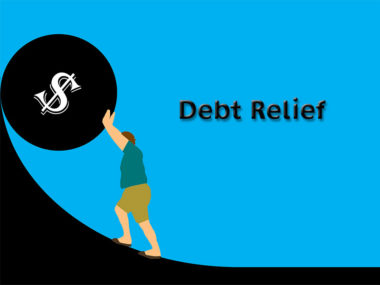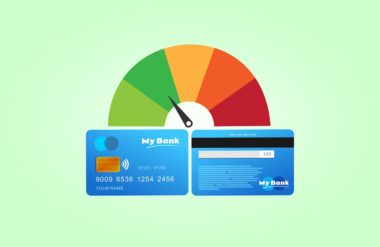In our day and age, financial advice often tends to focus on the young (who are building their credit and history) or on the old (who are thriving in credit but looking to retire). But what about those in the middle?
Right now, the generation in the middle of their careers are the Generation Xers. Generation X is commonly associated with the financial crash of 2008: they were certainly the generation hit the hardest during that time. But since then, many of them have matured in their careers, raised children, and are well on their way to paying off their home mortgage and other large loans.
How hard was Generation X hit by the financial market crash? Have they since improved their credit and recovered, or are many of them still struggling catch up? What hard-hitting lessons and credit stories does this generation have to share?
Table of Contents
The Forgotten Middle Child
Unlike Baby Boomers — who flourished throughout the 80s and 90s from a prosperous economy — and unlike the millennials — who are struggling with massive student loans and debt — the Generation Xers are generally stuck in the middle. They have their own debts to worry about, and they missed out on a welcoming economy during their early years. They experienced two financially devastating eras: the dot-com bubble of 1997-2001, and the stock market crash and economic recession of 2008. With all these negative experiences, it’s no wonder that Gen Xers tend to not trust Wall Street.
Yet it is because of these two financial crashes that the “forgotten middle child” of the generations is struggling so much with debt. The majority of their debt is in mortgage payments, according to a study done in 2014 by two economists with the Federal Reserve Bank of St. Louis. As their study highlights, the most indebted birth group from their survey was born in 1970, with over $142,000 in debt. Additionally, along with their high debt is a slow growth in terms of income, both for this group and across the board. So while Generation X is not making much money, they are still suffering from their large amounts of debt, and are only able to pay it off slowly over time.
This shows just how damaging the effects of the 2008 crash were, and how Generation X is still recovering from the downfall, even in 2014. Yet the crash wasn’t the only detrimental hit to this generation: student loans also played a role.
Although student loans are often seen as a “millennial problem,” the rising cost of college hit the generation before them, too. And with pressure from their parents to pursue college, many Gen Xers had to prolong starting their career. Once they got going, they already had a debt deficit and were immediately hit with the two devastating financial crises of ‘97 and ‘08.
The ensuing crash happened when many of them were buying their first homes, or were right in the middle of a promising career. Unfortunately many lost their jobs and homes, forcing them to rely more heavily on their debts, and throwing a fairly large wrench in their savings plans.
Middle of the Road
Now, Generation X is struggling to save up money for retirement while they pay off their ever-increasing loans. But this doesn’t mean Generation X is setting themselves up for failure. In fact, quite the contrary, as many Gen Xers understand the importance of saving up for retirement earlier.
Unlike Boomers — who realized late in the game that their retirement savings were too meager for a fixed income lifestyle — Gen Xers have taken some responsibility for their retirement packages. Many of them are still behind in terms of savings, but it has become one of their top priorities, along with cash management and repaying debt.
This could be partially due to the fact that many Gen Xers — 28 percent according to a survey collected by Financial Finesse in 2016 — have dipped into their retirement savings to help offset some of their existing and overwhelming debt. Now, they are suddenly confronted with the realization that if they don’t save up fast, they might be stuck just like the Boomers before them.
Credit Scores for the Middle Child
One could expect that the average credit score for Generation X is fairly low. Their high debts and stagnant wages are certainly setting them up for frequent late payments. Additionally, many have had to file for bankruptcy, or had their home foreclosed.
Yet the average score for many Generation Xers is, actually, doing just fine. The average score according to the latest Experian survey is hovering around 655, or “fair” according to the Vantage Score rating. So it seems that, despite some negative history, their heavy debt and regular payments on that debt have afforded them a comfortable standing in the credit bureau’s eyes. They might be struggling to save up, but at least they’re making their payments on time.
Their utilization ratio, however, is the highest among all the generations: 37 percent, versus 36 percent for Millennials and 29 percent for Baby Boomers. If Generation Xers want to continue their healthy credit score, they will need to keep that number in check. However, when you’re living paycheck-to-paycheck and struggling to save up, that is much easier said than done.
For more information on credit scores, visit the Fiscal Tiger credit score learning center.
The Mind of the Middle Child
Generation X is not the easiest generation to do research on. There are plenty of resources on Baby Boomers, and even more resources on Millennials, but Generation X is often left in the margins: not the subject of many studies, and just used as comparison for other groups.
But Generation X is full of influencers. About 55 percent of startup owners are Gen Xers, including people like Elon Musk. Many of them are managers, parents, educators, or other important figures. They have an impact on our financial world, and they have a lot to teach us about navigating through financial troubles.
In the end, Generation X is still struggling to find their footing in the financial world, but their strong credit habits and debt experience can be used as a valuable tool for education. Although they might feel ignored, they are making a meaningful impact financially, professionally, and socially.





